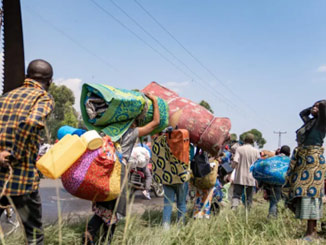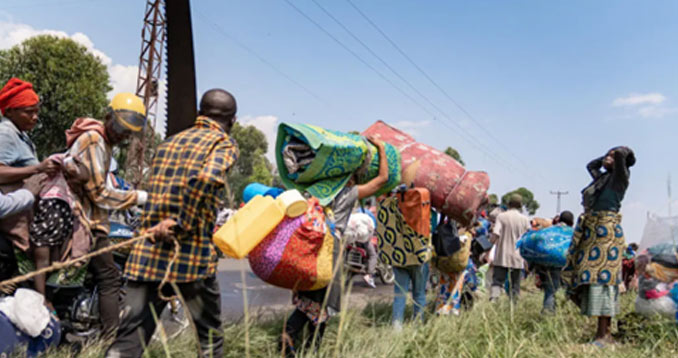

In Goma, the Democratic Republic of Congo continues to grapple with the devastating consequences of ongoing conflict, in the heart of Africa. As the world’s attention shifts to other crises, the people of Congo endure another year of violence, displacement, and despair.
According to recent reports from the United Nations Office for the Coordination of Humanitarian Affairs (OCHA), the humanitarian situation in Congo remains dire, with millions of civilians in urgent need of assistance.
The conflict, fueled by a complex web of political, ethnic, and economic factors, shows little sign of abating, despite international efforts to broker peace. Speaking to local residents in the war-torn eastern regions of the country, the desperation is palpable.
“We live in constant fear,” says Marie, a mother of three who fled her village due to fighting between government forces and rebel militias. “Our children have known nothing but violence and displacement. When will it end?”
The roots of the conflict in Congo run deep, with historical grievances and competition over the country’s vast mineral wealth fueling decades of instability. “Congo’s wealth has been a curse for its people,” remarks Dr. John Kabongo, a political analyst based in Kinshasa.
“Instead of bringing prosperity, it has fueled greed and violence, leaving the population trapped in a cycle of poverty and conflict.” Recent clashes between government forces and armed groups have led to a surge in civilian casualties and displacement.
According to Médecins Sans Frontières (Doctors Without Borders), healthcare facilities in conflict-affected areas are overwhelmed, with medical supplies running dangerously low. “The fighting has made it difficult for us to reach those in need,” says Dr. Fatima Nzengu, a field doctor working in North Kivu province. “Many patients arrive with life-threatening injuries, and we’re struggling to save lives with limited resources.”
The international community has repeatedly called for an end to the violence and a return to dialogue. However, efforts to broker a lasting peace deal have been hampered by mistrust among the warring parties and competing interests. “There can be no military solution to the conflict in Congo,” emphasizes Antonio Guterres, Secretary-General of the United Nations, in a recent statement to the Security Council.
“All parties must prioritize the well-being of civilians and engage in meaningful dialogue to resolve their differences.” Despite the challenges, there are glimmers of hope on the horizon. Civil society organizations and grassroots movements within Congo are mobilizing for peace, advocating for dialogue, reconciliation, and respect for human rights.
“We refuse to be mere bystanders in our own country’s tragedy,” declares Celeste Mutombo, a community leader in Goma. “It’s time for all Congolese to come together and build a future free from violence and oppression.” As the conflict in Congo enters another year, the resilience and determination of its people serve as a powerful reminder of the human spirit’s enduring strength.
The road to peace may be long and arduous, but with sustained international support and a genuine commitment to dialogue and reconciliation, there remains hope for a brighter future for the people of Congo.
